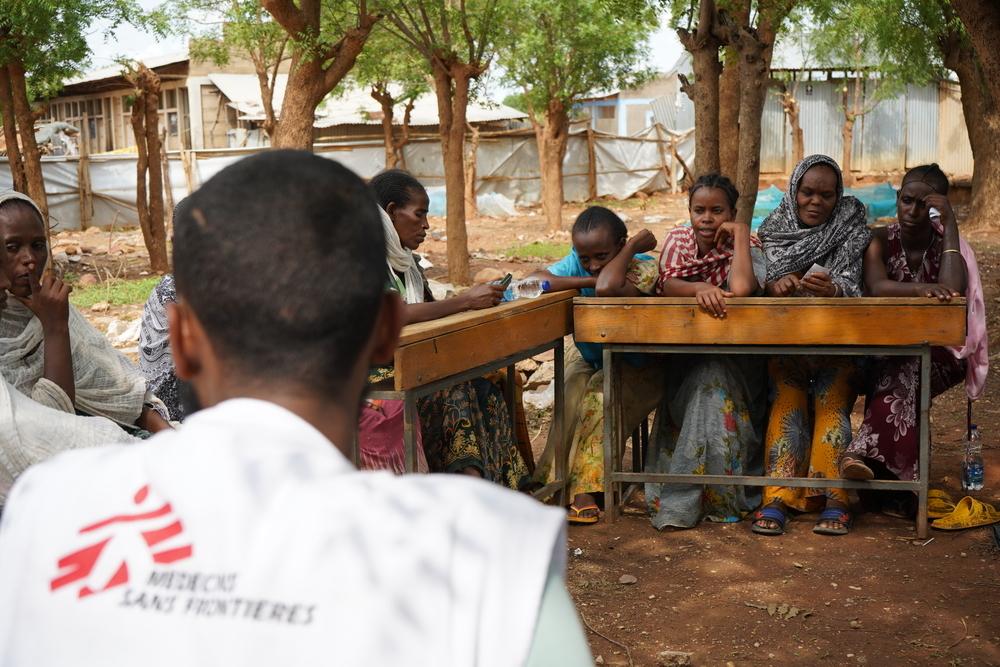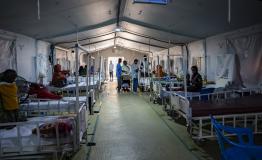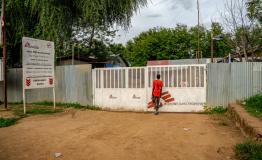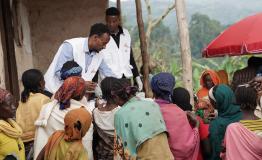Tigray, Ethiopia – 7 October 2025 - Three years after the cessation of hostilities in the Tigray region of Ethiopia, communities continue to face the devastating consequences of violence, displacement, and the collapse of essential services. In this region in the country’s north, more than 760,000 people remain displaced; many are living in overcrowded camps with little access to food, clean water, sanitation, or shelter.
However, despite the two-year conflict having ended, nearly three years later, thousands of people are still dealing with one of the most overlooked consequences – the psychological impact of trauma from violence, loss, and displacement. This impact is heightened when coupled with lack of access to essential mental health care.
Living with trauma
At Maiani hospital in Sheraro, where Médecins Sans Frontières (MSF) provides specialised mental health support, including to Gebreyohanes, an MSF patient displaced during the conflict.
“Life is very hard. The rain comes through the roof and floods the ground,” says Gebreyohanes. “I don’t have a proper place to sleep.”
“Back home, I used to farm and feed myself. I used to sell what I farmed and make money,” he continues. “I was in a good place, but after I came here, I’ve been very sad.”
Gebreyohanes, who has physical injuries resulting from the conflict, now lives alone, as his family fled to Sudan; he has since lost contact with them.
“My back hurts. My knees hurt as well because of what happened to me,” says Gebreyohanes. “Because of the violence, I don’t feel good. I can’t even work and make a living.”
Despite receiving mental health services which has offered him some relief, Gebreyohanes is still aware of the long-term impact.
“They [the mental health sessions] are helping me,” says Gebreyohanes. “But at night I still have so much stress… when I feel physically sick, I get triggered and I get angry.”
Women attend in a group therapy session organized by MSF at Sematat IDP Camp in Shire
Stigma remains one of the major restraints in accessing mental health, as Azmera, one of the patients attending counselling at Maiani hospital for almost two years, recalls her hesitation when a nurse first suggested she meet with a counsellor.
“At the beginning, I was not willing,” says Azmera. “I did not think this was something good because I thought this kind of treatment was for psychiatric patients only. I also felt people would give me a bad name if I did it.”
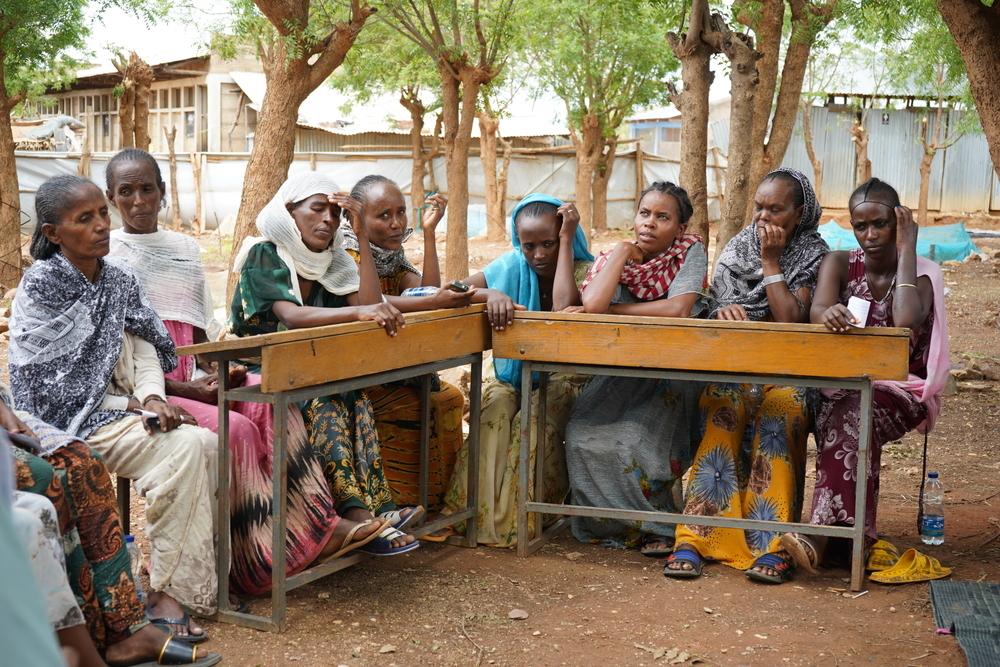
“When I come here, I feel free, calm, and good — just as water satisfies someone who is very thirsty,” Azmera continues. “I have a big change now; I was not like this. I was in a bad condition. Especially this month, I was in very bad condition when I came here, but thanks to MSF’s support, I am feeling good now.”
Despite the signs of recovery, the impact of conflict lingers.
“Even now, sometimes I experience flashbacks,” says Azmera. “There are times when I feel good and times when I don’t; my mood keeps on fluctuating.”
Cases like Azmera’s are a pattern seen by MSF staff working on the ground at the Five Angels displaced people’s camp. “At first, conditions were acute. People came in shock, overwhelmed by what they had witnessed,” says Helina Tsegaye, a mental health counsellor who has worked at the camp for more than two years. “Now, we see more chronic issues such as sleep disturbance, aggression, grief, and the stress from poverty, as many have lost their homes, their income, and their relatives.”
Yet stigma also remains a barrier.
“We are still trying to create the awareness that seeking mental health counselling is normal. But there is still stigma, as people consider it as if the person is going crazy,” says Tsegaye. “It’s usually easier for females to talk about their feelings. For men, it’s more difficult, but awareness is slowly improving.”
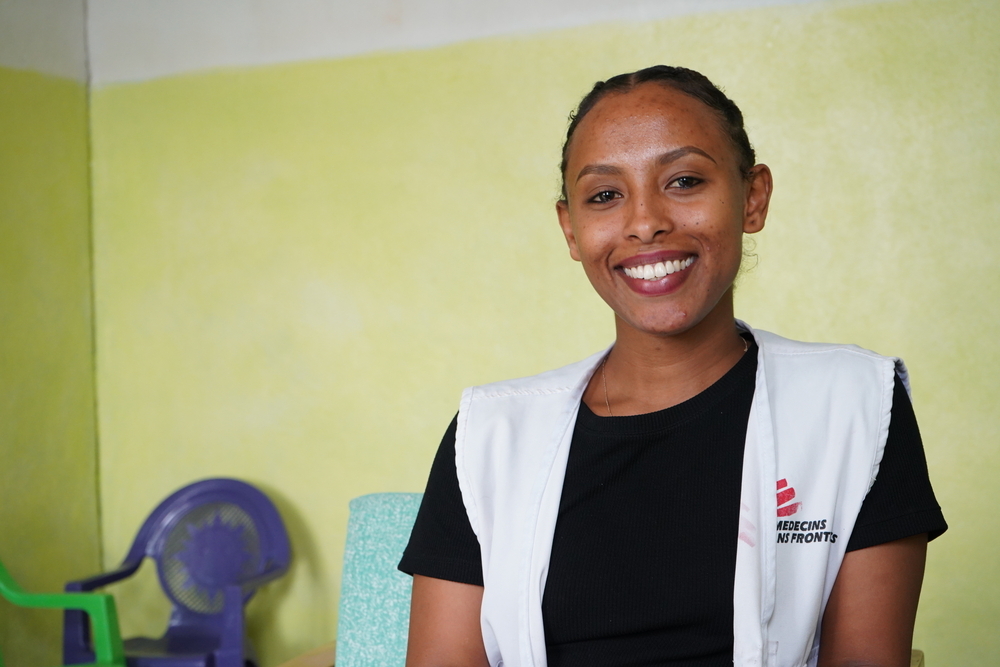
A mental health lifeline
Since resuming activities in November 2022, MSF has provided mental health care to more than 12,000 patients in Shire and Sheraro. Services include one-on-one counselling, psychological health education sessions with health promotion teams, group therapy sessions, and referrals to hospitals for psychiatric care.
In addition to mental health services, MSF also manages high-risk pregnancies, responds to disease outbreaks, neglected tropical diseases and provides treatment for malnutrition. But mental health remains one of the most overlooked and urgent needs.
“The brain is part of the body; just as the stomach can get sick, so can the mind,” says Tsegaye. “It is important to seek professional help when needed. But without sustained support, recovery will be impossible for many.”
On World Mental Health Day, MSF calls for continued attention and investment in mental health services in Tigray. For thousands of people still coping with the scars of war and displacement, this care is not a luxury — it is a lifeline.
“Mental health care saves lives. It must continue,” concludes Tsegaye
